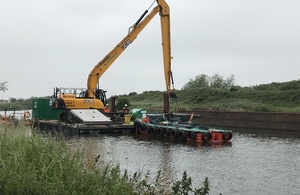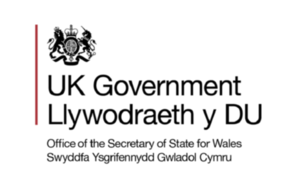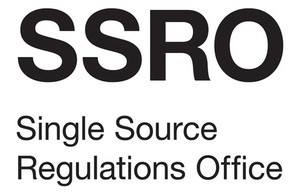Bounce-Back plans for Northern Ireland’s tech sector
- Exports Minister Graham Stuart has addressed tech businesses in Northern Ireland, outlining a series of measures to help recovery from the challenges of coronavirus
- The new measures will help create and support jobs by increasing exports and attracting international investment
- Northern Ireland’s £1bn tech sector is vital to the nation’s economy, employing 28,000 people across 1,200 companies
Northern Ireland’s flourishing tech sector stands to be one of the biggest beneficiaries of “Bounce-Back” plans to help firms recover from the challenges of the coronavirus crisis.
Speaking to business owners from the country at a virtual event today, the UK Minister for Exports, Graham Stuart, and Minister of State for Northern Ireland, Robin Walker, outlined a series of measures aimed at turning the UK into a global digital powerhouse.
Around 28,000 people are employed in Northern Ireland’s tech sector, which is worth approximately £1bn, across 1,200 companies, with Belfast becoming Europe’s leading destination city for new software development projects.
The new measures jointly announced by the Department for International Trade (DIT) and Department for Digital, Culture, Media and Sport (DCMS) last month, will seek to increase tech exports to fast-growing international markets, including Asia-Pacific, strengthen scale-ups’ readiness to export, and attract investment to drive innovation and create jobs.
The comprehensive package includes the creation of a new Digital Trade Network for Asia-Pacific, which will support small and medium-sized enterprises (SMEs) to break into the Asian market.
The plans also include the launch of a new Tech Exporting Academy, which will provide expert advice to UK scale-ups on subject areas essential to expansion, including regulation, intellectual property, and compliance. The Academy will be led and delivered in partnership with leading professional services firms.
Northern Ireland is fast becoming a global cyber security hub, delivering expertise on threats to national security, critical infrastructure, capital markets, e-commerce and child safety online. The Centre for Secure Information Technology (CSIT), based at Queen’s University Belfast, is the UK’s largest cyber security research centre.
In addition, its creative and digital media sector has a wide range of talent and state-of-the-art technology, hosting a dynamic cluster of companies who are working with global clients within animation, audio technology, mobile content and e-learning.
Exports Minister, Graham Stuart, said:
As a global hub of digital excellence, the UK is perfectly placed to grasp the huge opportunities ahead for tech growth – and nowhere more so than Northern Ireland, home to one of the most vibrant tech ecosystems in the country.
This country’s tech sector is a huge success story, driving innovation, boosting growth and generating well-paid jobs. I am fully confident that, with the measures we have set out, a tech-centred recovery will allow the UK, and particularly Northern Ireland, to overcome the challenges of coronavirus and reinforce our status as a leading player in digital trade.
Minister of State for Norther Ireland, Robin Walker, said:
I’m very excited about the opportunities the Bounce Back Plan presents for Northern Ireland, which already has very strong foundations in the industry. Northern Ireland is set to benefit hugely from this new scheme as it has an established £1 billion tech sector which is vital to the local economy. These new measures will help these tech businesses prosper in the post-coronavirus economy, not only here in the UK, but internationally.
Northern Ireland Minister for the Economy, Diane Dodds, said:
I welcome these bounce-back measures from the UK Government, which will assist Northern Ireland’s tech sector push forward the economic recovery. The tech sector is a cornerstone of the NI economy. I am keen to build on the success that companies in the sector have had, and continue to have, propelled by our world class skills and innovation ecosystem.
Central to this aim is the ability to access key markets such as Asia Pacific, as well as marketing of the world-class tech services that NI companies can deliver. These measures will provide valuable advice and support for our tech firms as they look to compete globally in the current economic climate.
The government’s measures are being announced as part of a wider programme of support for the UK tech sector to ensure the industry benefits from trade opportunities, including future free trade agreements (FTAs).
Future FTAs with partners like the US and Japan will enable the UK to go further, setting new standards in areas of digital technology and e-commerce, and encouraging further investment into the UK’s world-leading tech companies.
The full range of measures announced by the Government includes:
- Launch of an £8m Digital Trade Network (DTN) for Asia Pacific, a joint DIT-DCMS network, to support UK tech businesses to internationalise in this fast-growing region, attract capital and talent to the UK and enhance UK digital economy collaborations internationally. By increasing UK digital tech expertise on the ground across a number of key markets – including Japan, South Korea, Thailand, Singapore, Indonesia, and Australia, government will help innovative companies access new trade and investment opportunities, and forge new international partnerships for the digital economy. Tech Nation – the UK tech scale up experts – will be joining the Digital Trade Network, which will see businesses participate in an international mission to Asia Pacific, as part of Tech Nation’s programmes in fintech, AI and cyber, to support their expansion into the region.
- Creation of a new Tech Exporting Academy, to provide expert advice for high-potential SMEs to support growth into priority markets. Led by leading professional services firms (including Linklaters, Deloitte, KPMG, BDO, Taylor Wessing, EY and Clifford Chance) UK SMEs will receive expert advice across a wide range of areas including legal, tax, intellectual property, regulatory and compliance to help reduce the time to market for exporting and increase UK exports. The support will ensure that women tech founders are represented on the cohorts of companies selected for the export academy.
- A new DIT platform to supercharge UK tech engagement on the global stage and mitigate the impact on firms unable to attend international industry events and investor meetings. This will include a greater presence at international industry events and access to virtual trade shows and virtual event platforms to support international buyer-seller meetings and companies-to-investors introductions. This will be launched in September. Virtual trade shows will allow UK businesses to showcase their capabilities and network with overseas businesses and investors. Technology will be at the heart of the government’s new Ready To Trade campaign with specific campaigns on edtech, medtech, cyber, VR, gaming and animation.
- An expansion in support for DIT’s High Potential Opportunities (HPOs) tech programme, to drive foreign direct investment (FDI) into emerging subsectors including 5G, Industry 4.0, Photonics and Immersive Technology, ensuring the UK remains the most attractive destination for tech investment in Europe post-coronavirus. Working closely with the Devolved Administrations, LEPs and industry partners, government will seek to promote the full spectrum of UK tech capability to overseas investors and identify emerging growth markets for UK firms.
- The launch of a new financial technology (fintech) campaign in the UK, including promoting UK fintech companies who enable digitisation and resilience in priority export markets, to enhance UK tech competitiveness on the global stage after Coronavirus and ensure we remain the best place to start, scale and internationalise a fintech business.
- An uplift in outreach and engagement by UK Export Finance’s (UKEF) marketing and communications to raise awareness of UKEF’s offer among UK tech firms and how UKEF and Trade Finance can help them win and fulfil export contracts.
Tech is a key growth area for the UK, contributing £149bn to the economy in 2018, (7.7% UK GVA) and employing more than 2.9 million people. Last year, the UK attracted a record £10.1bn worth of investment (up 44% from the previous year), more than Germany and France combined.



